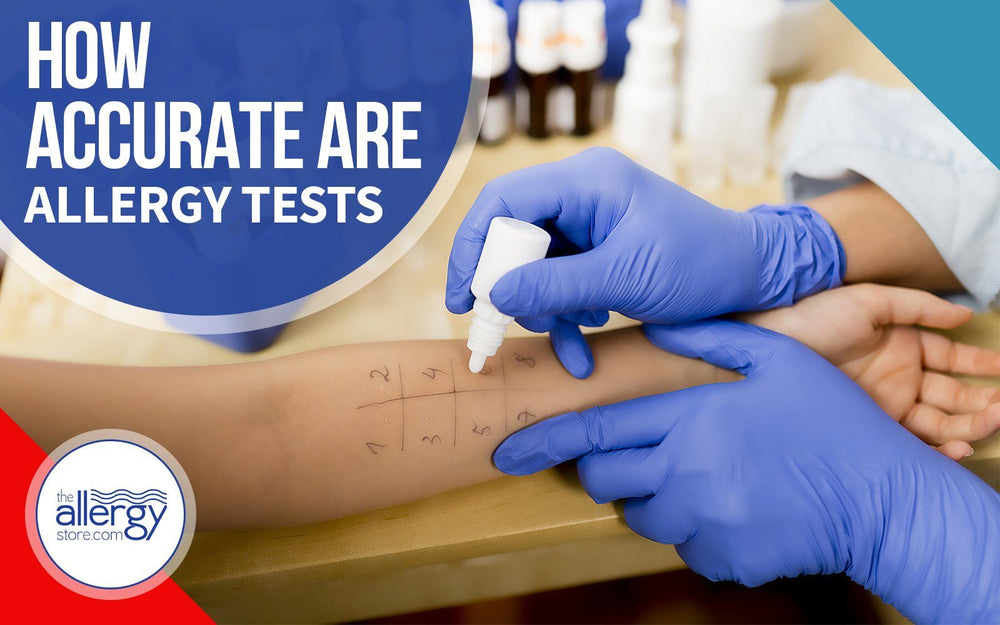
While allergy tests are recommended as the only sure way to isolate individual triggers and successfully treat symptoms, there is some question about just how accurate these tests really are and how easy it is to interpret the results.
According to Michael Blaiss, Executive Medical Director, American College of Allergy, Asthma, and Immunology,
"So you might think it would be just as easy when looking at the results of your allergy tests. Sometimes it is and sometimes it isn't. There are many different "allergy" tests that can be done at home or in a physician's office, and because not all tests – especially home tests – are Food and Drug Administration-approved or reliable, this may lead to difficultly in understanding the results."
In fact, since there is such a wide range of reactions and symptoms can vary from one individual to another, it can be difficult to gauge the accuracy of test results.
In general, the accuracy of results will depend on the individual being tested and the type of allergen being tested for. Skin prick tests, intradermal tests and patch tests, for example, will be accurate for airborne or contact allergens but will not work for food allergies or allergies to most medications. These types of allergies will require a blood test or another form of testing for the best results.
Skin prick tests apply a small amount of a suspected trigger to an isolated patch of skin. After 15 minutes or so, if the substance is a trigger, a reaction will occur. These tests are most accurate for pollen, dust and insect bites. Up to 40 substances can be tested at one time with this method, but usually, the total is far fewer.
Other types of skin tests, including intradermal and patch, are also geared mainly toward contact or airborne allergens and are usually pretty accurate. The accuracy of any test will depend heavily on the doctor or nurse performing it. Only trained personnel should administer these types of tests as some allergic reactions can occur as a result so they need to be carefully monitored.
For reactions to food or particular medications, other types of testing will be necessary. These can include blood testing and hair analysis. These types of tests take longer to produce results but generally do not cause any unpleasant side effects. Because results are produced in a laboratory setting, results are normally quite accurate.
The main difficulty with determining the accuracy of testing is that reactions can vary from individual to individual and further, your reaction to a particular substance can sometimes change over time. This is why some people talk about “outgrowing” their allergies. As the body matures and the immune system develops, the response to trigger substances can be naturally reduced.
Often, you may have a positive response for a substance when tested that you have never had a problem with before or sometimes you can have a negative result and yet still react to that substance when not in a test situation. None of the tests is one hundred percent accurate, but they are still considered the single best way of determining susceptibility to a particular trigger or triggers.
DIY IgE Allergen Tests
While there are many at-home allergy tests on the market, it does not take the place of a doctor’s advice, especially if a person’s symptoms are serious.
The aim of a home test kit is to make testing more affordable and accessible to all. A home allergy test will also help you prepare for a doctor’s appointment to address your symptoms.
AllerSmart IgE, based in Vancouver, British Columbia, has an IgE-based allergy test that screens for the “Top 9” US food allergens — peanuts, tree nuts (specified as “Western Nuts”), milk, eggs, soy, wheat, fish, crustacean shellfish and sesame — as well as 29 common environmental allergens including grasses, dust mite, trees, weeds, cat, dog and molds.
Many people are leery of being tested, as they don’t believe the tests will actually work, but having any information, however tenuous, is still better than blindly guessing. At least with a direction to point in, you can have a better idea of what type of treatment to use to lessen your symptoms.
Wishing you the best of health
The Allergy Store
Cited Source
Michael Blaiss, 10/15/2021, Allergy Tests: What to Know, https://www.msn.com/en-us/health/medical/allergy-tests-what-to-know/

